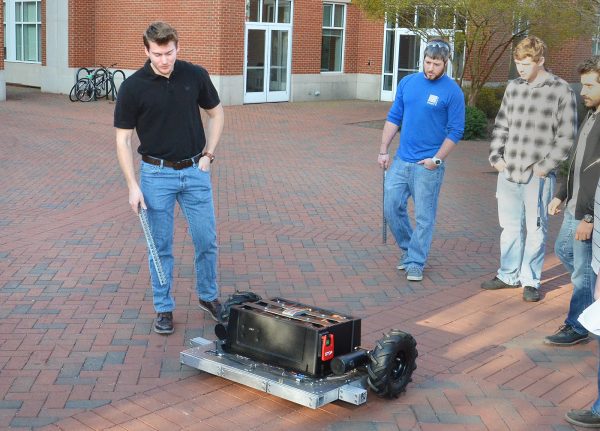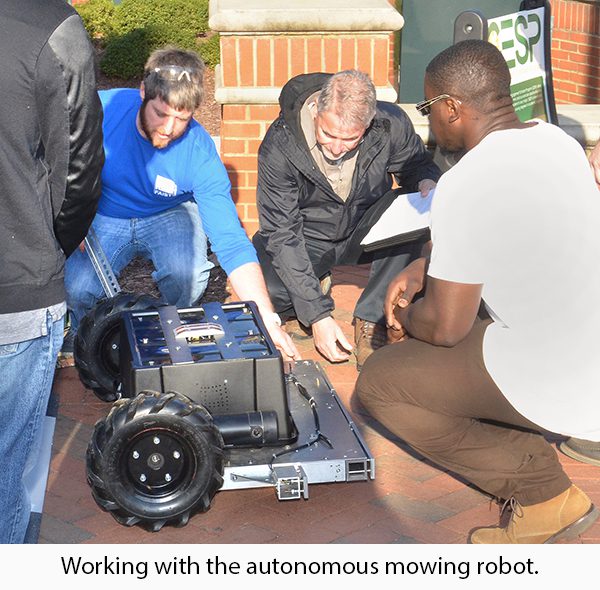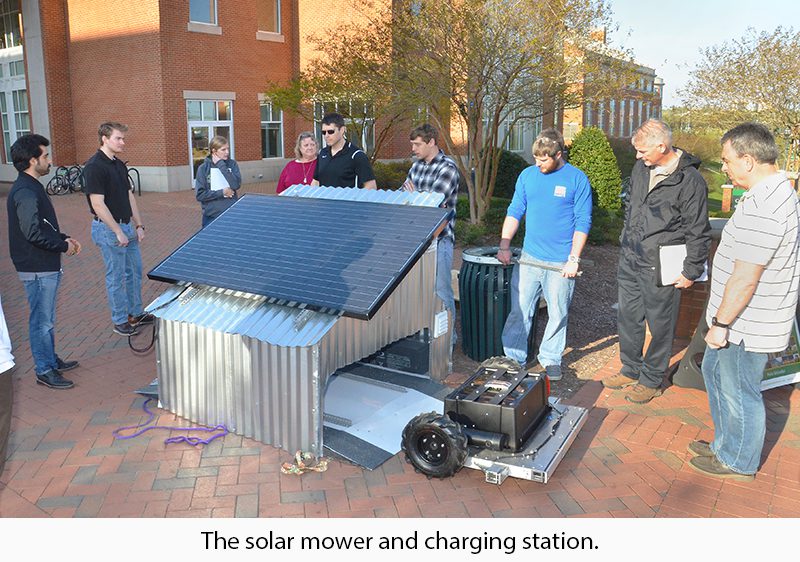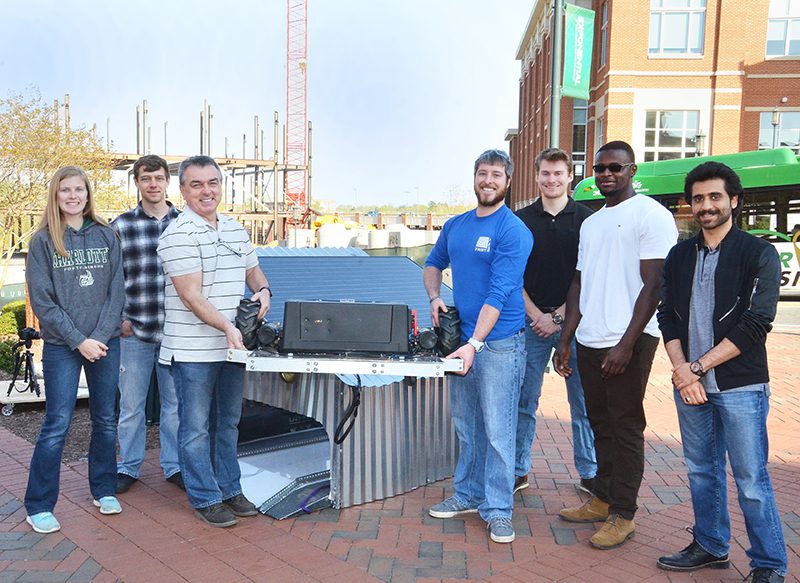Solar-Powered Mowing Robots for Solar Farms

A constant issue with large solar farms is controlling vegetation growth around solar panel arrays. In the true spirit of a farm, solutions to this challenge even include using goats and sheep to eat the grass and other plants. The problem with goats and sheep, though, is they also tend to chew wires and important equipment. Teams of seniors at UNC Charlotte have been seeking to engineer a better way of controlling solar farm vegetation, and their solution is autonomous solar-powered lawn-mowing robots.
Supported by the Electric Power Research Institute (EPRI), the projects are part of the Senior Design Program in The William States Lee College of Engineering. The first team to tackle the problem did its work in 2016-2017, and developed the solar-powered robots. The second team, working in 2017-2018, developed solar recharging stations and improved autonomous guidance systems for the robots.

The 2017-2018 team was made up of Abdulmohsen Alsarraf (Mechanical Engineering), Mark Baczynski (Electrical Engineering Technology), Jessica Cedrone (ME), Patrick Cunningham (Mechancial Engineering Technology) , Joseph LeNoir (ME), Ferdinand Owusu (EET), and Austin Stilwell (EET).
“Our project was proof of concept for the docking stations used to charge the robots,” said team member Jessica Cedrone. “The team before us designed the robots, which have to be able to go under solar panel modules and racking that is only two feet off the ground. The robots also have obstacle-avoidance technology to keep them from damaging equipment.”
The second team designed and built a prototype of the new solar charging station for the robots. They also had to develop the software, GPS and other guidance systems for getting the robots to the stations.
“When batteries on the robot are low, it begins the docking procedure,” Cedrone said. “It uses GPS to find the charging station. When it get close to the charging station, it detects underground guiding wires and traces them into the housing.”
Depending on the size of the solar farms, the number of robots and charging stations can be changed. Smaller farms can use a few robots that share a single recharging station, and larger farms can have multiple mowers and recharging stations.
“We feel pretty good about the outcome,” Cedrone said. “The project was kind of innovative, which made it exciting and fun. We all worked well together. We got everything done we wanted to get done.”

Dan Hoch, program director of Mechanical Engineering Technology, and Deb Sharer, associate chair of Engineering Technology and Construction Management, were co-mentors for both the 2016-2017 and 2017-2018 teams. “It was an excellent multidisciplinary project,” Hoch said, “encompassing almost all the departments in the college. It was a great project for the students, because it involved some many facets of engineering.”
EPRI, the project supporter, was pleased enough with the results to go ahead and agree to support phase three, which will be field testing. “Beginning next semester,” Hoch said, “a new team will begin taking the concept out of the controlled lab environment and into the field. Working with the robot and charging station in a real solar field will be a great test of their abilities.”
Providing students with an innovative, hands-on learning experience, the Senior Design Program at UNC Charlotte is educating engineering students, supporting industry partners and benefiting the State of North Carolina. The program teaches students how to apply their years of math, science and engineering knowledge to solve the unique problems presented by many progressive North Carolina companies. The William States Lee College of Engineering encourages multi-disciplinary projects that involve engineering and technology solutions in the disciplines of mechanical, electrical, computer, systems, environmental and civil engineering.
